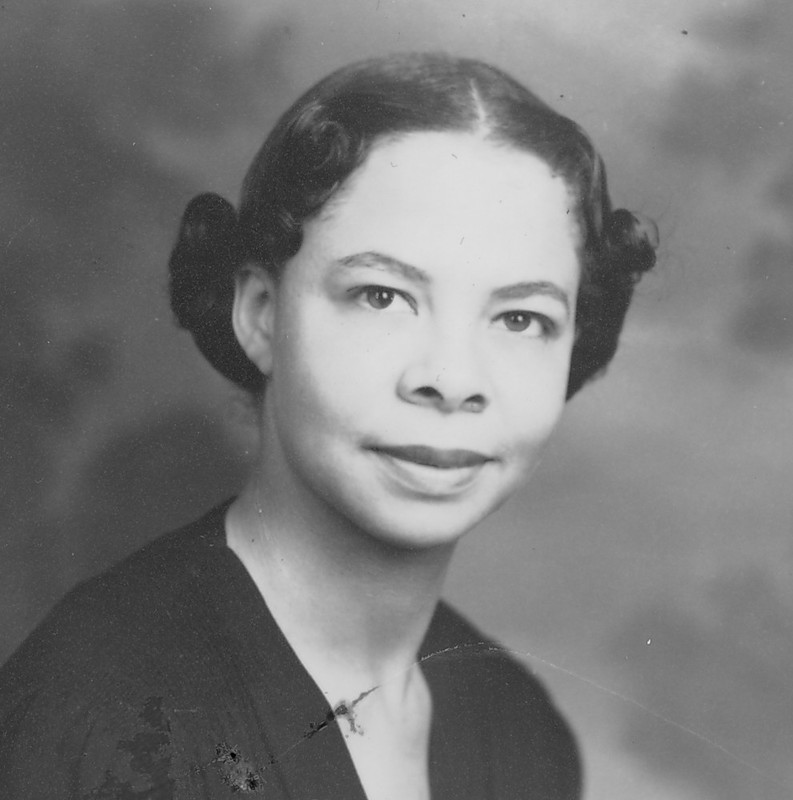Leadership Gallery
Fannie Pitt (Gross) Jeffrey, 1910-2004
Fannie Pitt Gross said the following in her application for the position of national field secretary of The Episcopal Church’s Woman’s Auxiliary in 1939:
I believe that I can best serve my people - the Negroes - by helping them to realize and accept the Christian way of life, I feel they need spiritual guidance and leadership that will reach deep into their personal lives and homes.”
-Fannie Pitt Gross
As Woman’s Auxiliary National Secretary for Colored Work from 1940 to 1945, Fannie Pitt Gross was a dedicated advocate of religious education and spiritual leadership for African Americans. A trusted missionary and worker whose opinion and recommendation was often sought by her peers, Fannie served in Washington, DC, New York, North Carolina, and Ohio, before retiring her position in 1945. She is remembered as a champion of equality within The Episcopal Church, and as a pioneering Black woman leader who exhibited, "quiet yet persistent ways of struggling against racism," according to Fredrica Harris Thompsett, author of the article “Women in the American Episcopal Church.”
Fannie Pitt was born in Tuskegee, Alabama, on August 8, 1910. Her parents, Fannie Thompson and Claudius Pitt, met while working at Tuskegee Institute (today Tuskegee University). Her mother was an assistant in the cooking division at Tuskegee Institute from 1903 to 1906; her father was assistant bookkeeper there from about 1903 to 1911. In 1914 Claude Pitt moved his family to Denver, Colorado. Born and raised in a family that valued education, Fannie also had an older sister, Florida, born in 1908, who is remembered as an active and pioneering educator - specifically, with the naming of the Florida Pitt Waller Elementary School in Denver. Extended family members remain in the Denver area.
She pursued her education and church work outside of Denver, graduating in 1926 from Dunbar High School in Washington, DC, and attending Colorado State College of Education in Greeley, Colorado, where she earned her Bachelor of Arts degree in 1930. Around this time, Fannie married James P. Gross, with whom she had a son, James P. Gross, Jr., born in 1934. She and Mr. Gross subsequently divorced.
Fannie felt a desire to specialize in religious education in 1938 when she was enrolled at the Bishop Tuttle School in Raleigh, North Carolina. During the summer of 1939, she served as a parochial worker for both St. Philip’s and St. Monica’s parishes in Washington, DC. That same year, she applied and was granted a Woman’s Auxiliary scholarship to study for one semester in New York. Fannie also was one of the first African-American graduates of Windham House, that had established a program that combined fieldwork with courses toward religious education degrees, which were awarded by Union Theology Seminary. While working as national field secretary, Fannie explored her interest in religious and spiritual education by completing graduate course work in the Department of Religious Education at the Teachers College of Columbia University in New York.
During her tenure with the Woman’s Auxiliary, the National Council of the Episcopal Church launched a program to reach out to Black congregations throughout the country. Inaugurated in 1943, this new program sought to address issues such as poorly equipped and unattractive church buildings, unacceptably low stipends for Black clergy, and low numbers of communicants within Black congregations. The committee that was appointed to lead the program placed special emphasis on outreach to rural areas and communities with smaller resources. Fannie Gross successfully accomplished this, for example, by working with the Tuttle Community Center in Raleigh, North Carolina. As national secretary, she also advocated for equal salaries between blacks and whites working for the United Thank Offering, and supported increasing training and religious education opportunities specifically for lay workers. Woman’s Auxiliary national staff often consulted her for recommendations on training and leadership.
Fannie’s position with the Woman’s Auxiliary ended in 1945, the same year that she married Mr. Lynn D. Byrd. Although documentation about her life beyond 1945 is limited, she is known to have married in her later years Mr. Newman Jeffrey. Upon her death in October 2004, she was honored by members of St. Barnabas Church and the Denver chapter of Alpha Kappa Alpha sorority with the establishment of the Fannie Pitt Jeffrey Memorial Fund. Fannie was proud of her work and remained committed to preserving the legacy of Episcopal lay leaders like herself who tirelessly worked toward the advancement of African Americans in the Church, and society at large. [Sources]


